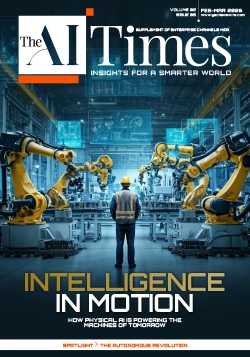Even before the pandemic, impartial observers such as third-party analyst firms were predicting surges in AI adoption. PwC, for example, predicted that AI would have a $320 billion impact on combined Middle East GDP by 2030. Growth like this was never likely to be confined to large enterprise activity.
Instead, smaller businesses moving to the cloud would dip their toes in the AI fountain. Once they found that business intelligence, machine learning, IoT, big data, and other AI-fed technologies were viable, useful, and affordable, they would consume more.
We will see roles within organisations expand and change to accommodate low code adoption
Before 2020, every business wanted AI. In 2021, every business discovered the need for AI. In 2022, every business will have AI. Enterprise AI will hence be supplanted by Everyday AI. This is a culture change at industry scale.
We will begin to see data science unleashed as never before
One-off projects and use-case specifications will be replaced with rapid rollouts. Specialist AI sub-departments will be replaced with companywide adherence to AI principles geared towards business longevity.
The empowerment of business specialists with out-of-the-box solutions-building capabilities is a trend that is gathering steam, and quantifiably so. One estimate predicts CAGR of 27.9% between now and 2026 for the worldwide low-code development platform market. Offerings are showing significant evolution to cater to a range of workflows and AI is becoming more and more common among low-code orchestrations.
We can expect governance to play an important role in risk-based assessment of new use cases
Meanwhile, data scientists and more technical coders can apply their talents to more challenging problems, which means that we will likely see roles within organisations expand and change to accommodate low code adoption.
Following on from the predicted low-code empowerment that will stretch the talents of both technology and domain specialists, we will begin to see data science unleashed as never before. Data science has suffered the same prediction-disappointment cycle as AI, but there are now strong indicators that experimentation is yielding results, and results are building confidence.
Data science has suffered the same prediction-disappointment cycle as AI
As organisations build their AI cultures and become more efficient in their governance, more data science projects are being launched. As this happens, we can expect governance to play an important role in risk-based assessment of new use cases, especially if they fall outside the comfort areas of existing projects.
As organisations build AI cultures and become more efficient, more data science projects are being launched
If a stakeholder were advocating for a project where the required data was missing or incomplete, this could indicate a high probability of failure and would therefore need to be tightly managed. Understanding one’s own processes and modelling them accurately will be key to the success of these next-step ventures. But the potential value of successful outcomes will be too great to ignore, so expect to see a lot more experimentation in 2022.
There are now strong indicators that experimentation is yielding results
Organisations that use AI may have new confidence in its efficacy, but regional governments anxious to build sustainable futures can be expected to call for innovation that benefits a wide range of people. Where governments opt not to step in directly, there is still the self-regulatory side of AI to consider. ESG emerged so strongly recently because the bottom line is no longer the only concern in the boardroom.
Before 2020, every business wanted AI. In 2021, every business discovered the need for AI. In 2022, every business will have AI. This is a culture change at industry scale.


























